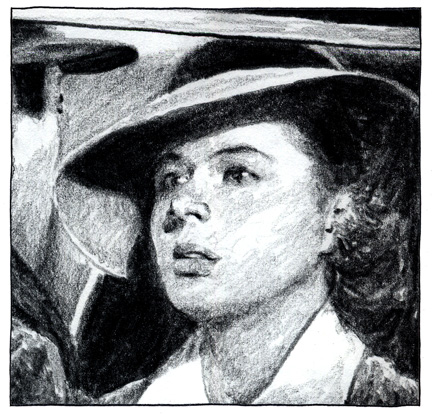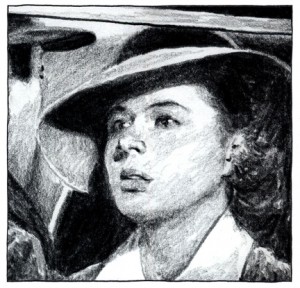So, I was hanging out with Noam Chomsky in his office at MIT and we were talking about art and whether or not novels, plays, paintings and movies could ever be sufficiently weaponized to bully the dominant culture into being more accepting of radically humanitarian ideals and he said, comparing films from the past with films being produced nowadays, “I’ll occasionally look at an old movie from the 40s and its kind of fun because I remember them from when I was a kid, but you couldn’t really call them high art. The actors were very wooden, there’s no storyline. It’s fun to watch Cary Grant and Greta Garbo and people like that – Humphrey Bogart was fun, but he wasn’t subversive.”
“In all fairness,” I said, “the job of cinema back then was different. Acting was exaggerated to serve the artistry of drama more than to mirror reality, which is more subtle and less precise – duller even. Dialogue celebrated the written word more than the spoken word, which, I think, [is often] spectacular. [After all], you don’t go to a ballet and then ridicule the dancers because you don’t see people walking down the street like that, do you?”
We had gotten off the main point of our conversation and into an area that was not at all unfamiliar to me. For years I’ve argued against fascistic modernists in favor of the artistic legitimacy of early filmmakers and playwrights. To me, the purpose of art, any art, has always been to provide a spectator with an experience or a vision unlikely to come to him or her through everyday living. Sure I know that prejudice, for example, is abhorrent and that there are way too many demonstrations of that fact occurring all the time in the real world for me to have any doubt, but I can’t help believing that my spiritual understanding of what that kind of lazy hatred can do to a man’s soul is helped by something like Spencer Tracy’s speech at the end of Guess Who’s Coming to Dinner, or Gregory Peck’s eloquent defense, as Atticus Finch, of an African American wrongly accused of rape in To Kill a Mockingbird. Indeed, nobody in real life speaks as poetically as either one of those scripted actors, but isn’t the truth too important to always be limited by the facts?
Sure, Norman Rockwell might appear more factually accurate in a literal sense than Willem De Kooning, but you have to ask yourself that if real vivid cosmic truth had radioactive properties which artist do you suppose would be more likely to make you vomit, piss blood, babble incoherently and then drop dead?
Okay, Bogart might not be subversive, but The Big Sleep kills me every time.


Lauren Bacall kills me every time
http://drx.typepad.com/psychotherapyblog/images/2008/08/02/bogart_and_bacall_to_have_and_have_.jpg
zowie
You had me at, “So, I was hanging out with Noam Chomsky…”
“being more accepting of radically humanitarian ideals ”
So sad that “humanitarianism” need be such radical idea!
I think it takes years for people to truly separate the wheat from the chaff as far as films go…. The Big Sleep is brilliantly plot-less ( I spent a whole weekend watching the two versions trying to figure out the dead chauffeur’s part in the shenanigans)
And for every good speech, there is a “Gary Cooper in Fountainhead Moment”